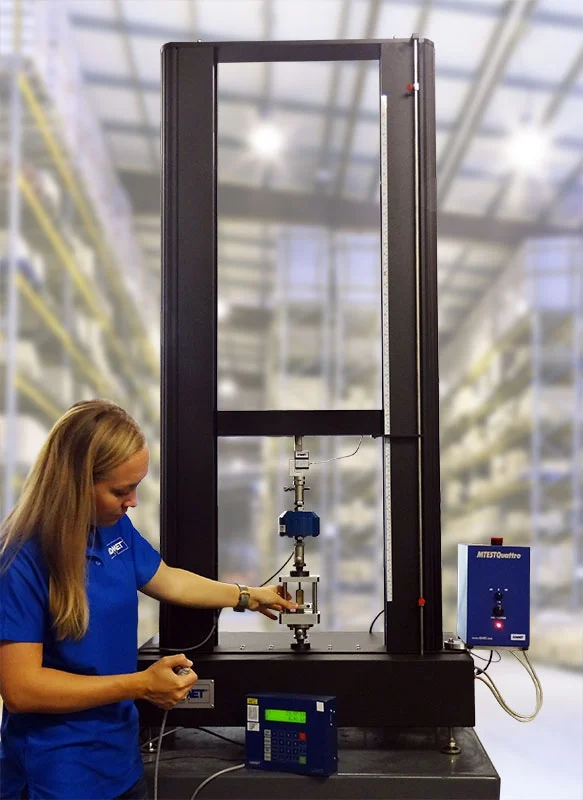
Why is it crucial in testing industry?
Periodic calibration ensures that universal testing machines (UTMs) or materials testing machines provide accurate force, displacement, and speed measurements over time. Machines naturally drift from their original calibration due to factors like wear and tear, environmental conditions, or sensor degradation.
Without proper calibration:
✅ Accuracy is compromised – Measurements become unreliable, leading to incorrect material properties.
✅ Compliance risks increase – Many industries (automotive, aerospace, construction, etc.) require ISO-compliant testing.
✅ Customer confidence is affected – Poor quality control damages reputation and trust.
ISO standards mandate regular calibration intervals (typically annually) to maintain accuracy and ensure traceability to international measurement systems (SI units).
The outcomes of skipping periodic calibration can lead to serious consequences at multiple levels:
| Product Quality Risks | Safety Hazards | Non-Compliance with Standards | Financial Losses | Negative Customer Experience |
|---|---|---|---|---|
| 🔴 Incorrect material properties – If a testing machine provides incorrect force or displacement readings, materials may be approved that do not meet required specifications. 🔴 Inconsistent test results – Poor calibration can lead to variations between tests, making quality control unreliable. 🔴 Undetected defects – Weak or defective products may pass tests, leading to potential failures in real-world applications. | 🚨 In industries like aerospace, automotive, and construction, unreliable testing can lead to structural failures, accidents, or catastrophic defects, posing risks to end users. | ❌ Failure in audits – If a company is audited for ISO 9001, ISO 17025, or other certifications, non-compliance in calibration records can lead to penalties, certification loss, or legal liabilities. ❌ Regulatory fines and legal consequences – In critical industries, regulatory bodies may impose fines or product recalls due to testing non-compliance. | 💰 Product recalls – If a defective batch is identified, companies may need to recall products, leading to financial and reputational damage. 💰 Customer claims and warranty issues – Incorrect testing can lead to increased product failures, resulting in warranty claims, compensation costs, or loss of business contracts. | 👎 Customer dissatisfaction – Products that fail prematurely lead to negative customer experiences and damage brand reputation. 👎 Loss of market competitiveness – Competitors who invest in proper calibration will gain an edge in delivering higher quality, more reliable products. |
Skipping periodic calibration for cost savings is a short-term approach; investing in periodic, ISO-accredited calibration ensures consistency in quality, safety, and compliance in the long run, protecting both the manufacturer and the end customer.
In industries where product integrity is crucial, skipping proper calibration is not an option—it’s a risk no company can afford.



